Surgery is one of the most anxiety-inducing procedures that exist. Whether you’re booked for a minor surgery such as an ingrown nail or a major surgery such as an open myomectomy, it’s normal to wonder how can be best prepared ahead of a planned surgery.
Before my open myomectomy, I scoured the web daily to find personal surgery stories from women who had had the surgery and decided to dedicate this post to anyone preparing for any type of surgery.
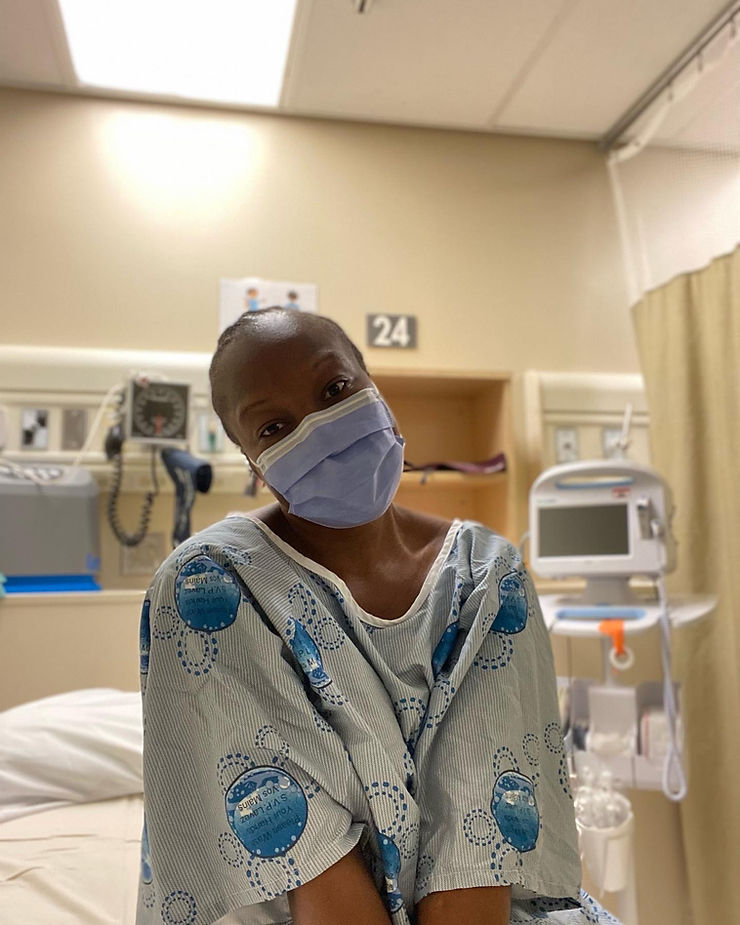
Whether you’re having inpatient surgery or being received as an outpatient, it is important to have a recovery plan. Your plan should also allow for unforeseeable complications and a potential extended hospital stay. Moreover, when preparing for your day of surgery, also plan for an unexpected cancellation.
As we are still in a pandemic and with a global shortage of nursing staff and health care providers being faced, some hospitals are limiting access to the operating room and rescheduling a lot of non-emergency surgeries.
I have split this post up into 3: how to prepare a few weeks before surgery, the day of surgery and some tips for recovery post-surgery.
1) How to prepare a few weeks before surgery:
After you have signed your consent form with your surgeon, things start happening fast.
For non-emergency procedures where your life is not in immediate danger, a health care provider, usually a registered nurse, would give you a call some weeks in advance. During this call, they would confirm the type of surgery you have been booked for.
They would also advise on at least some of the following specific instructions if you are having major surgery:
-The nurse will run briefly through your medical history, if you have had any surgeries in the past, ask whether you are pregnant or if there is a chance you may be etc.
-You are not to wear nail polish the day of your surgery (apparently this can prevent your doctor from reading your vital signs via the color of your nails). This includes not placing acrylic nails on your fingers. If there was ever a time to be as natural as possible, this is it.
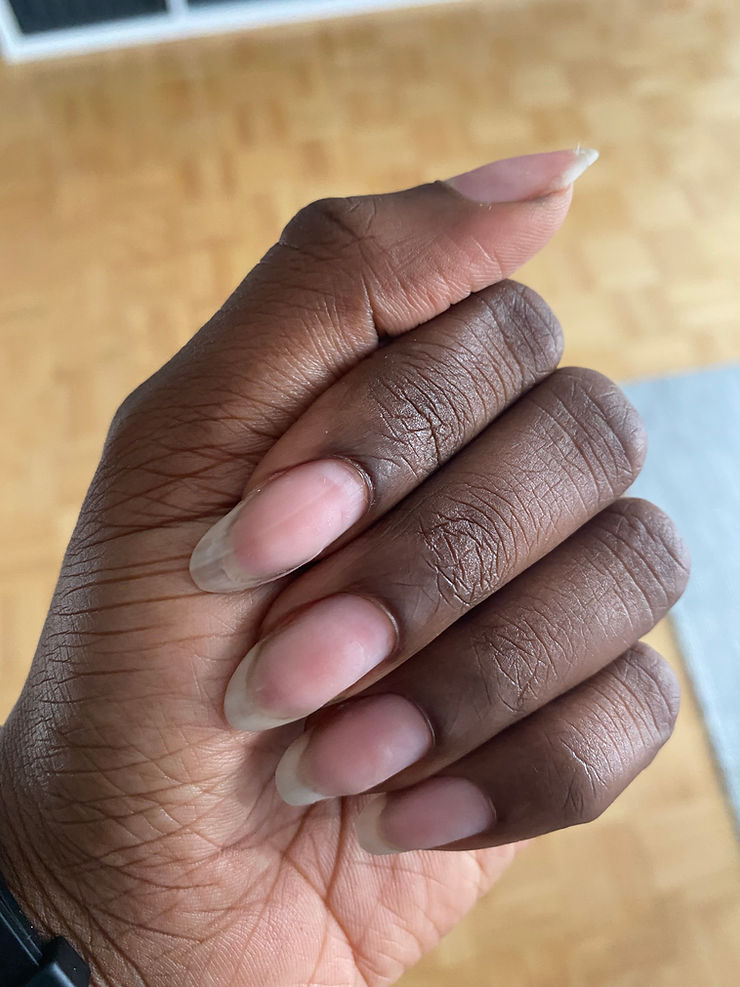 -You would most likely not be allowed to consume any food at least 8 hours before surgery. Water may most likely only be drank until 4 hours before your surgery and not even a sip of water may be had 4 hours or less before your medical procedure.
-You would most likely not be allowed to consume any food at least 8 hours before surgery. Water may most likely only be drank until 4 hours before your surgery and not even a sip of water may be had 4 hours or less before your medical procedure.
-You may be asked to not use any hair products, including hair spray nor deodorant or body sprays the morning of.
-You would be asked to confirm any allergies you may have, including to anesthesia.
-You would be told whether your surgery would require general anesthesia or local anesthesia.
-If you are having outpatient surgery, depending on the type of procedure, the nurse would confirm you have someone who would be accompany you home on your day of surgery.
-The nurse would most likely ask you to leave any valuables such as your wedding ring at home. This is because during surgery, no one is responsible for your belongings and the hospital cannot be held liable if any of your personal items are stolen. I suggest packing just a small backpack.
-You would be asked if you have any body piercings or tattoos. Piercings should be removed before your surgery.
-The nurse would most likely ask if you wear glasses or contact lenses. If you do wear contact lenses, they would probably ask you to take them out and wear your glasses on the day of your surgery.
-You would most likely be asked to shower or bathe with an antibacterial soap the day before and the morning of your surgery. This is to prevent any infections during the medical procedure.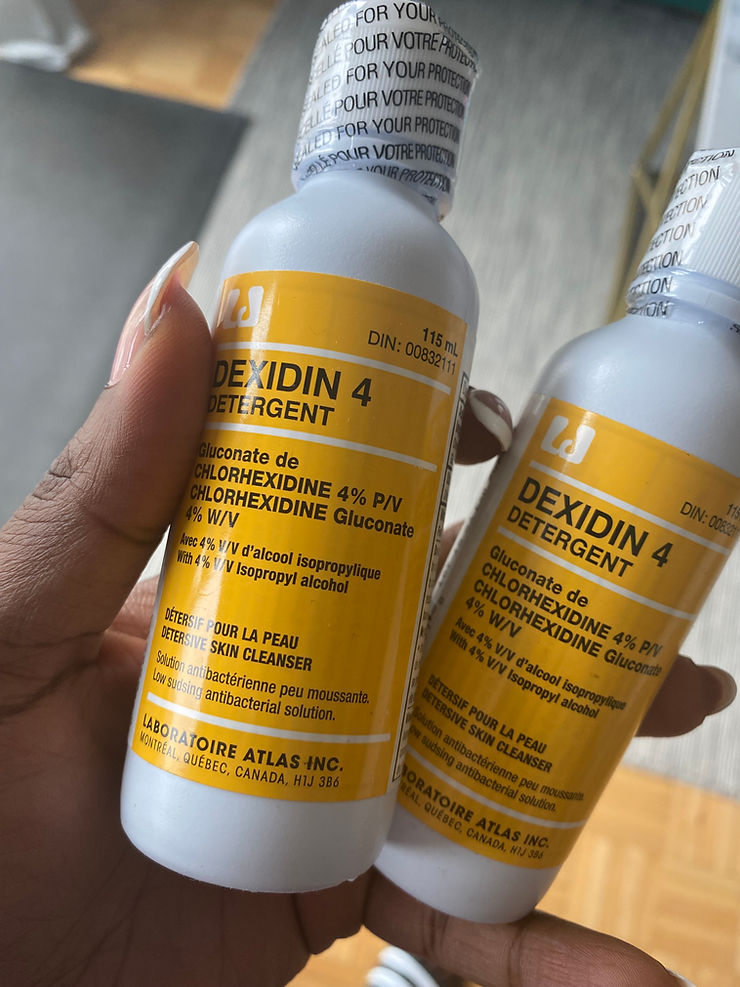
Unfortunately, in Ontario at least, the nurses confirm neither your surgery time nor arrival time until the day before your procedure.
For inpatient surgery, where you would be admitted for at least one night, the hospital’s pharmacist would typical reach out to you in advance as well. During the call, they would ask for all current medication you may be on and their prescribed dosage.
They would also inquire about both prescription and non-prescription medication you take, including allergy medications.
If you take daily vitamins or even a nasal spray, they want to hear about that as well.
Your blood type would also be confirmed, in case a transfusion is necessary during surgery. Seeing as some people do not know their blood type, I assume they check this as well prior to your day of surgery.
Some weeks before surgery, you would most likely be sent to get some final tests done such as a chest x-ray, some blood tests, MRI scan or ultrasound. If you are anemic, you may be sent for an iron transfusion some weeks ahead of your planned surgery date to get your iron levels up before your big day.
It is a good idea to get yourself organized at this stage and:
1) See if a family member or any responsible adult would be able to accompany you to the hospital and back on your surgery date.
2) Prepare some meals and freeze them a few days before your surgery; cooking may become impossible for some time.
3) Place items you use everyday within reach – this includes your towel, toilet paper and plates.
4) Ensure your home does not have any safety hazards. The last thing you want is to trip on some wires after you just had your abdomen cut open!
Regardless of the type of surgery you are getting, I do not advise taking public transportation either to or from the hospital. You do not want to be that patient who shows up 30 minutes late to a surgery and end up having to wait another 6 months! You also do not know how groggy you may feel post surgery, even if you are receiving local or regional anesthesia. Better to be safe than sorry.
Do some research on common challenges faced by patients who have had this surgery before and pack a small bag, regardless of whether you shall be an outpatient or inpatient.
Before my open myomectomy, I was able to compile this list of items to get before a myomectomy and they came in handy during my recovery.
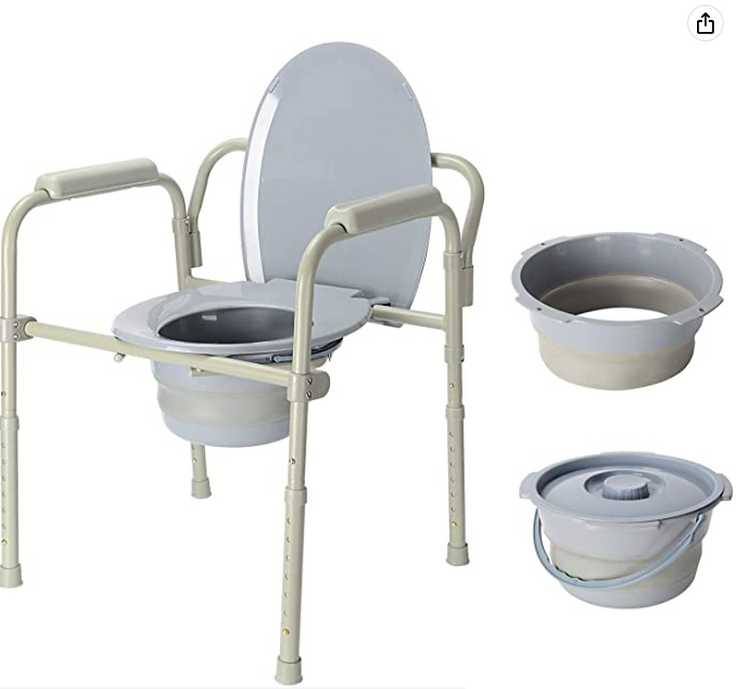
Consider packing the following items: a toothbrush, toothpaste, loose-fitting clothing, slip-on shoes, a change of underwear, a phone charger, whatever medication the pharmacist told you to bring along and a snack/drink.
If you are able to eat solid food after your surgery, you may wake up hungry and depending at what time food is served, it may be some hours before you are served any food. Having a snack and/or a drink could help prevent some hours of hunger.
2) Day of surgery:
You should have been told what your arrival time should be – this is typically 1-1.5 hours before the scheduled surgery. Face masks are still required in all medical facilities in Ontario so ensure you bring one with you.
Ensure you are wearing comfortable clothing, especially if it is a day surgery seeing as you may have to change back into it after.
This could include:
– Sweat pants and a t-shirt
– Loose-fitting shorts and a button-down shirt
– Linen trousers with an elastic waist
– A maxi dress

You can find more inspiration HERE.
When you arrive at the hospital, a pre-admission nurse would receive you in the reception area and ask for your health card and/or insurance card.
After being checked in, they would ask for the contact information of the person who would be accompanying you home or the person they need to call once your surgery is over.
You would then be taken to the pre-op area and shown where to change into your hospital gown and a nurse would remind you to remove all jewelry, all clothing including underwear and all hair accessories. An ID bracelet is also placed on your hand at this time – the bracelet digitally monitors all medication and fluid given to you while you are at the hospital.
Your medical history and allergies would once more be ran through and confirmed while you await your turn to the OR. A plastic bag would also be provided for you to place your belongings in.
Right before my surgery, the anesthesiologist as well as the nurse anesthetist came to see me and talk to me about how general anesthesia worked – here I was thinking it just involved me inhaling a gas, resting like sleeping beauty and waking up hours later. I did not realize it involved intubation.
My gynaecologist, who was also performing the surgery, came to see me some minutes before I was wheeled away as well. She advised me on her decision to change the type of incision I would be getting and asked for the phone number of the person she should contact in case of emergency.
When it’s your time to head to the operating room, a nurse will wheel you in on a wheelchair to a room where a surgical team would be awaiting you.
Your life is now in the hands of this medical team who would be doing their best to open you up, fix what needs fixing and sew you back up.
I was awake in the OR for less than 5 minutes before the anesthesia took its effect and the next time I woke up, I was in the recovery room.
Your recovery room stay is usually between 1-2 hours after which you are either discharged or taken up to your room, if you had inpatient surgery.
My backpack with my belongings was by my side when I awoke in deep pain from my surgical site.
It took another round of morphine and another hour of sleep before I could open my eyes and not feel like the ceiling would come crashing down.
If you are spending a night at the hospital, a nurse would take you up to your room where other nurses would monitor your blood pressure, heart rate and other vitals throughout the night and for the entire duration of your stay.
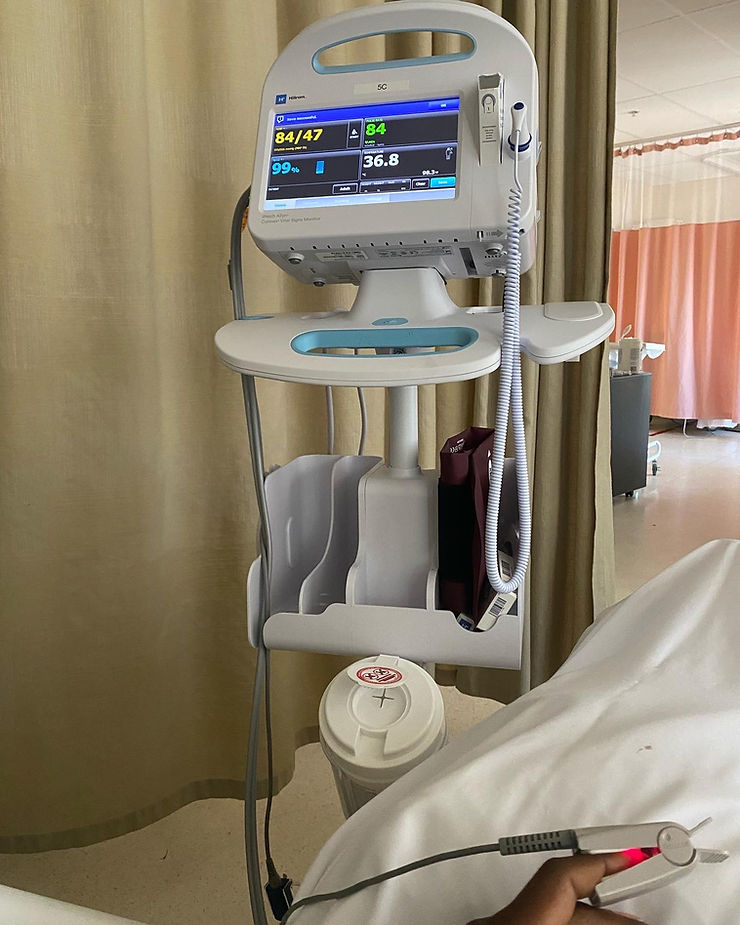 They would also be giving you pain medication (usually a narcotic) every 3 hours or so. They typically offer you this in the form of either a tablet or intravenous.
They would also be giving you pain medication (usually a narcotic) every 3 hours or so. They typically offer you this in the form of either a tablet or intravenous.
Depending on your type of surgery, you may be asked to consume just clear liquids or cleared to consume solid foods. Either way, you may want to take it easy on consumption of any type of food, especially as you may feel gassy.
Passing gas is such an important part of recovery and drinking some ginger ale or chewing gum helps a lot with that.
3) Recovery post-surgery
If you are spending additional days in the hospital, you would be encouraged to make some form of movement in order to prevent blood clots. If your doctor says you need to move, even if it feels like you’ll die if you take one step, it is important to do so.
For patients who have gone major surgery and have a significant decrease in mobility, an Intermittent Pneumatic Compression (IPC) may be strapped to the legs to encourage blood flow.
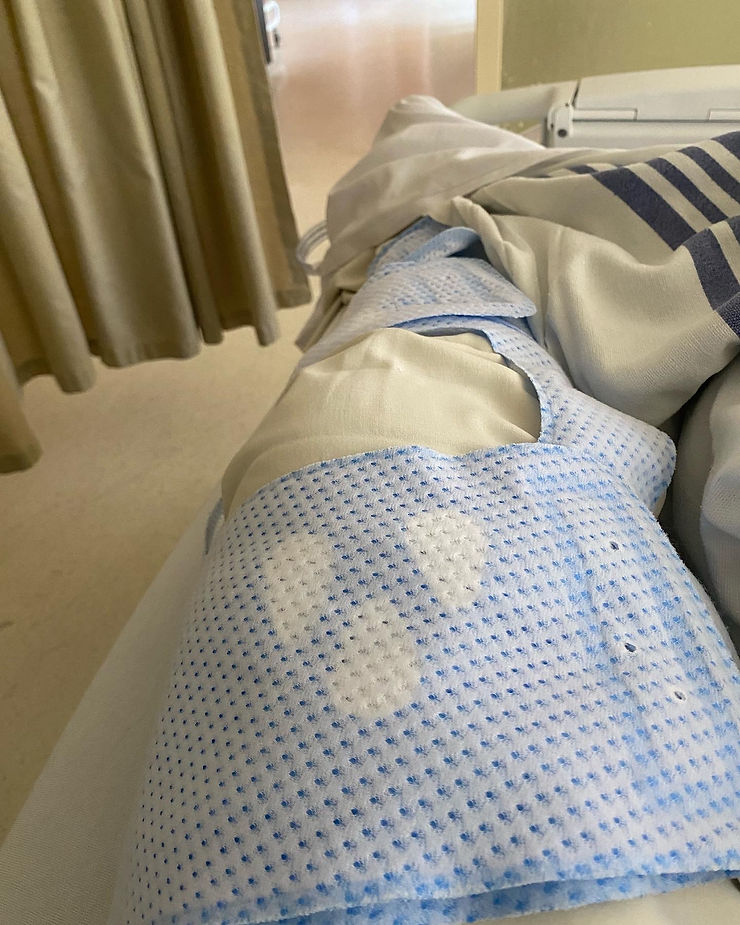
The effects of general anesthesia typically wear off within 24 hours. If you lost a lot of blood during surgery, you can expect to feel light headed, dizzy and very tired.
Another interesting side effect of anesthesia is itchy skin – Vaseline typically helps with that.
A doctor would typically come to check on you each day. During their rounds, they would advise you of blood test results, take a look at your incision and inquire about your progress.
It is at this stage that you have to let your body to the work while you rest. Patience is the word that comes to mind. All the items you purchased to help you in recovery would be put into use.
On your discharge day, you may want to wear loose-fitting clothes such as the ones I shared HERE.
If you are an independent person, depending on the nature of your surgery, you may need assistance to even clean yourself. Now is not the time to be prideful or embarrassed. If you need help, ask.
Some surgeries require days before you can resume normal activities while some need months. Your doctor or health care provider would advise you on your expected recovery time before you are discharged.
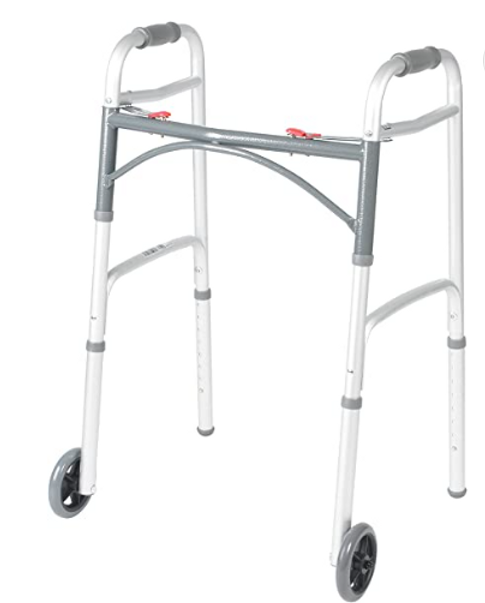
This recovery time is not a guarantee that you would be back to normal by that date as each body is different. It is important to listen to your body and to rest when you feel like it.
If you try to rush your recovery in order to return to work or household duties, you may end up delaying your return even more in the end.
It is a good idea to have some food cooked and frozen before your surgery date so that you could just heat them up upon your discharge.
Have a network of friends, family and others who you can reach out to should an emergency arise or if you simply need help taking the trash out. This is the time to lean on your loved ones for support – they should be more than willing to assist.
Always remember that no two surgeries are the same. Your recovery may look different from someone who had the exact same surgery as you and that is okay. As long as you listen to your body and your doctor, you should be just fine.
I hope this post has been useful to you and relieved at least a fraction of whatever anxiety you may be experiencing.
Let me know if you have any questions with regards to my own personal surgery experience.
If you are awaiting surgery, I wish you the best! You got this.
For some outfit inspiration if you’re headed for physical therapy, check out my post: 9 Outfits to Wear to a Physical Therapy Appointment.
XOXO
Theankaraqueen
